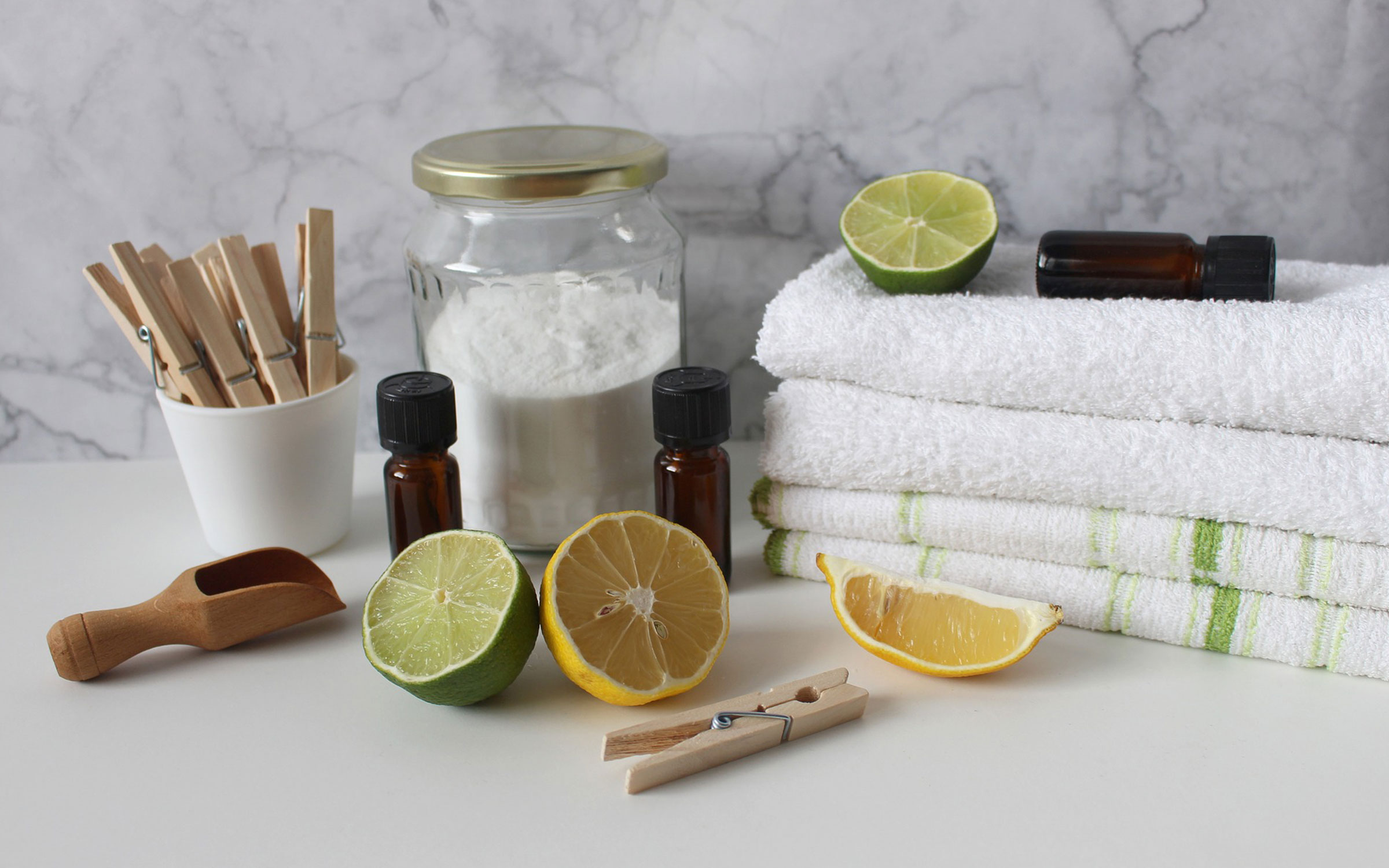Shopping cart
Recent Posts
Newsletter
Sign Up to get updates & news about us . Get Latest Deals from Walker's Inbox to our mail address.
Welcome to Sparkle
Email Address
info@sparkleottawa.caPhone Number:
613-581-1333
Menu
Sign Up to get updates & news about us . Get Latest Deals from Walker's Inbox to our mail address.
Welcome to Sparkle
Email Address
info@sparkleottawa.caPhone Number:
613-581-1333
 Did you know that you can make homemade, natural cleaning products with ingredients that you may already have in your kitchen? Make your DIY furniture polish, window and glass cleaner, all purpose natural disinfectant, soap scum remover and more with cleaning recipes that have been used for generations. But what are they?
Also known as sodium bicarbonate, baking soda is natural, non abrasive, eco-friendly, odor free and versatile. Baking soda has been used for over a century to deodorize, clean and scour away dirt.
Vinegar on the other hand is an acetic acid, eco friendly, antibacterial, residue free and streak free. Vinegar can be used around the home to sanitize surfaces, remove stains and soap scum, cut grease, control mold and mildew in your bathrooms ect. Unlike Baking Soda that is odor free, vinegar can leave an undesirable smell behind. To neutralize the smell, simply add a few drops of your favorite essential oil.
Continue reading and discover how baking soda and vinegar can help give you an extra oomph in your daily cleaning routine.

Pour baking soda and undiluted vinegar down the garbage disposal to eliminate bacteria and odors. Wash away the garbage bin and let it dry. You can also sprinkle baking soda at the bottom of your trash can to keep unwanted odors at bay.
Mix equal parts of vinegar and water in a spray bottle to clean and sanitize your fridge. To keep your fridge odor free, place an open container of baking soda inside the refrigerator.
The combination of vinegar and baking soda is one of the most effective ways to unclog and deodorize drains. It’s also more gentle on your pipes than commercial drain cleaners.
Pour 1/2 cup baking soda and a cup of vinegar into the drain. Then add 6 cups of hot water down the drain. Wait for 10 minutes and then flush again with water. This will eliminate unpleasant bacteria in the drain.
Mix a cup of baking soda and undiluted vinegar into a small bowl to make a paste. Sprinkle the paste onto a wet cloth or sponge. Scrub your tubs, sinks or bathroom wall tiles to remove soap scum and prevent mildew and grime buildup. Rinse thoroughly with water and wipe dry.
If you’ve been wondering which vinegar to use for cleaning, you are not alone. While there are many types of vinegar used for cooking and salad dressings (red, white, champagne, balsamic, rice, apple cider, to name a few), white vinegar is the best for cleaning around your home. White vinegar has high acidity that is strong enough to dissolve hard water stains, cut through grease and build up.
Due to its higher acidity, vinegar is antibacterial and a disinfectant that can kill some germs such as Escherichia coli (E. coli), Salmonella, and Listeria monocytogenes known for causing common foodborne diseases. To make a versatile all purpose disinfectant simply mix equal parts of cleaning vinegar and water in a bottle spray.
While vinegar may seem to be the answer to many cleaning jobs around your home, below you will find out examples of surfaces and items you shouldn’t clean with vinegar.
Contrary to popular belief that a vinegar solution works well on your hardwood floors, it is not recommended to use vinegar on hardwood floors. Over time the higher acidity in vinegar can dissolve the beautiful finish of your hardwood floor or leave white marks.
Hint: Use a gentle cleaner like a luke soapy water to maintain your beautiful hardwood flooring. Remember not to soak the floor as this can warp the floor over time. Alternatively, use a specific hardwood floor cleaner for your type of floor.
If you want to keep your stone countertop looking beautiful, cleaning it with vinegar over time may etch the surface.
Hint: Wiping down your beautiful countertop with warm water and a few drops of dish soap will do the trick.
Have you dropped an egg? Cleaning egg spills with a vinegar solution will cause the egg to coagulate making it harder to remove.
Hint: Mix a solution of two teaspoons of liquid dish soap in two cups of cool water. Then, dip a sponge, white cloth or soft-bristled brush in the solution and work into the stain. Once the stain is lifted dry the area with a clean, damp cloth or paper towel.
Most of us know that bleach and ammonia can create a toxic gas. Vinegar is another agent you shouldn’t mix with bleach. Mixing vinegar and bleach in your laundry creates a toxic gas which isn’t good either for you nor for your clothes
Hint: Avoiding mixing your products with bleach will keep your home clean and safe.
When mixed with the right ratio of water, vinegar can leave your windows and glass sparkling and streak-free. However, vinegar shouldn’t be used on the electronic screen of your computer, smartphone, tablet, or TV. It turns out that vinegar can damage the anti-glare properties.
Hint: Wiping down the devices with a clean, dry microfiber will work just as well.